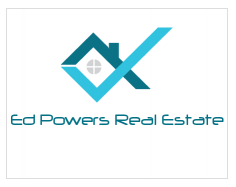When preparing to buy a Fort Collins or Loveland home, financing is typically in order. And for those shopping for their best mortgage deal, the two most asked-about questions concern the interest rate and closing costs. Sure, there are certainly other considerations but these two get mentioned more often than others. One lender can have a slightly lower rate, but the lender’s closing costs are a bit higher compared to others. Conversely, a lender offering slightly higher rates might have not just lower closing costs but might also offer a “no closing cost” option in exchange for an elevated rate. These are the things you and your loan officer will discuss.
While the rate is very important, after all it determines what your monthly payments will be well into the future, so too are closing costs. And consumers can make the wrong decision by not paying as much attention to how much a loan actually costs. A lender can provide you with a cost estimate either over the phone or by sending you a sample Loan Estimate. This estimate will highlight a list of closing costs you’re likely to see at your settlement. Your loan officer will also point out which costs are lender costs, and which are reserved for third party services.
Of these, there are recurring and non-recurring charges. Recurring charges are those you’ll see again, either every month or every year. For example, each time you make a mortgage payment, a portion goes directly toward the outstanding loan balance while another goes toward interest. Interest is a cost and it will be paid every month. That makes it a recurring cost. Property taxes and property insurance is another type of recurring cost. Non-recurring charges are one time fees paid at the settlement table. Title insurance, attorney and other one-time costs are non-recurring.
Okay, so when shopping around for a mortgage you want to know where rates are, but you should also ask about the lender fees. Third party charges shouldn’t vary from one lender to the next. An attorney will charge the same amount for a similar transaction, for example. It’s the lender charges that can be different from one lender to the next. What sort of fees does the lender have control over?
Common lender fees might be a Loan Processing fee. A loan processing fee helps to cover the overhead needed when moving a loan file through the approval process. The individual lender decides whether or not to charge such a fee as well as how much that fee will be. Another common lender charge is an Underwriting fee. This fee goes to offset the cost for making sure the loan file meets all the guidelines for the selected mortgage program. Again, the lender decides whether or not to charge the fee and if so, how much. Other lender fees collected might actually go to others such as a credit report fee or funds to pay for an appraisal.
It’s just as important to evaluate the cost of the loan from the lender’s perspective. A lender might have a rate 0.125% lower than another but charge $500 in closing costs. Loan officers know that when quoting a rate to a prospective borrower, the rate will be the most important factor. However, many consumers ignore the other part of the equation. To complicate matters more, the Loan Estimate can be very difficult to discern. Loan officers send them out daily, but they can look a little complicated to the consumer at first glance.
The takeaway? Get your rate quoted but also ask for a list of lender-required charges. The other fees the lender has no control over.
Message me if your thinking about buying a Fort Collins or Loveland home at m.me/EdPowersRealEstate







